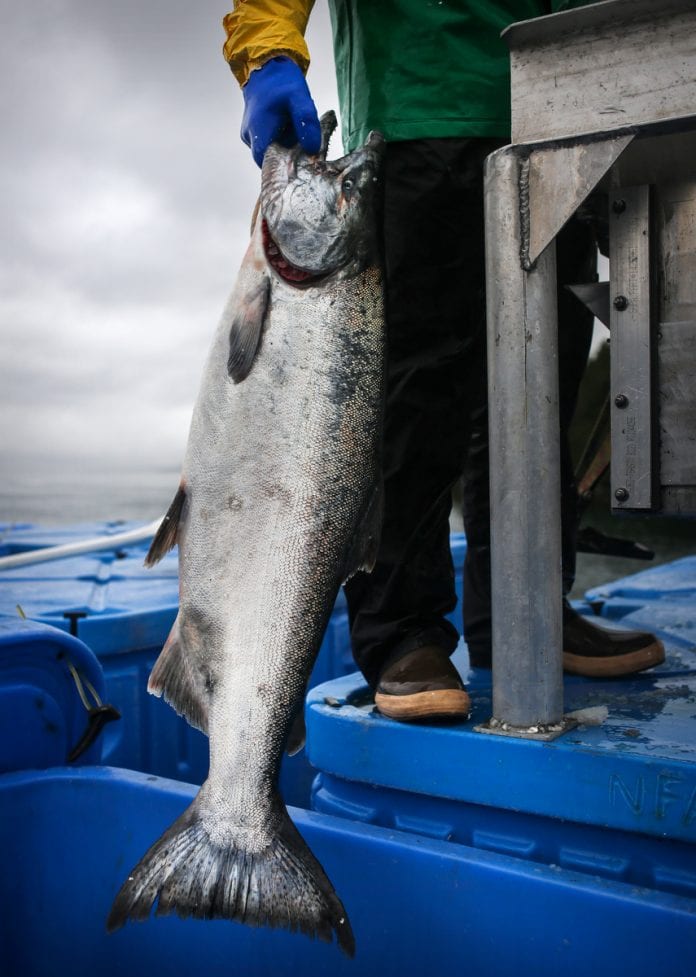State biologists are predicting a king salmon run that is nearly 20 percent above the 10-year average for the Copper River in 2019, while the Copper River and Gulkana Hatchery sockeye runs are expected to be 30.9 percent and 69.3 percent respectively below that 10-year average.
The run forecasts released from the Alaska Department of Fish and Game’s Cordova research biologists put the forecast range for kings on the Copper River at 33,000 to 77,000 fish.
For the sockeyes, the Copper River forecast was 1,031,000 to 1,801,000 reds in wild production at 71,000 to 125,000 from the Gulkana hatchery, putting the total forecast range for Copper River reds at 1,021,000 to 2,007,000 fish.
Research biologist Stacy Vega in Cordova noted that a year ago that the Copper River sockeye harvest came in well below and forecast, while the Chinook harvest was within forecast range.
For Coghill Lake, a sockeye run of 280,000 to 666,000 fish is predicted, which would put Coghill Lake at 193.8 percent above the 10-year average, biologists said.
For Prince William Sound, biologists estimated that the odd-year humpy run would range from 13,920,000 to 33,200,000, or 67.7 percent above the 10-year average, while wild production of chum salmon was estimated at 275,000 to 779,000 fish, or 10 percent above the 10-year average. The most recent odd-year average Prince William Sound wild pink salmon total run was 14,050,000 fish, while the most recent 10-year average wild chum run was 479,000 fish.
The research biologists noted in releasing these forecasts on Jan. 18 that salmon forecasts are inherently uncertain and are primarily used to gauge the magnitude of expected runs and set-early-season harvest management strategies.
ADF&G will continue this year to manage the Prince William Sound area commercial salmon fisheries in-season based on the strength of the run abundance, including sonar counts, weir passage, aerial escapement surveys and fishery performance data, they said.















